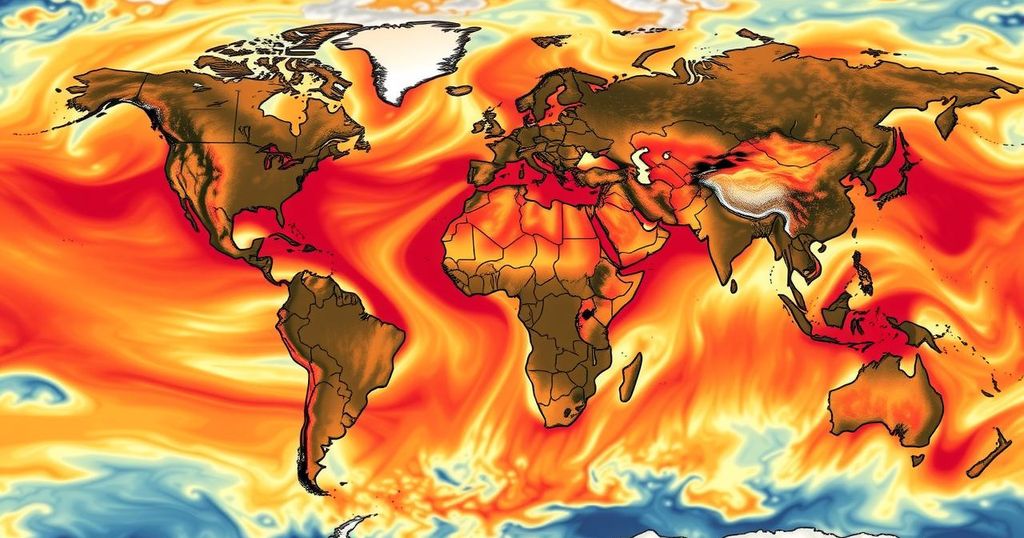Earth Records Hottest Year Ever, Surpassing Critical Climate Threshold

Earth experienced its hottest year on record in 2024, surpassing the 1.5 degrees Celsius threshold that has been deemed critical by climate agreements. This unprecedented warming has led to a series of extreme weather events, with significant financial losses and loss of life. Experts stress the need for immediate action to combat the severe impacts of climate change, as the planet’s health signifies a dangerous trajectory.
In 2024, Earth recorded its hottest year in history, surpassing a significant climate threshold established by the 2015 Paris Agreement. Various weather monitoring organizations reported that the global average temperature exceeded a crucial limit of 1.5 degrees Celsius above pre-industrial levels for the entire year. This unprecedented warming is attributed primarily to the accumulation of greenhouse gases due to fossil fuel combustion. Earth experienced a multitude of climate catastrophes, with 27 billion-dollar disasters recorded in the U.S. alone, as the world grapples with severe weather impacts of this rising temperature.
Measurements reveal a concerning rise in temperature variations among different agencies. While the National Oceanic and Atmospheric Administration (NOAA) and NASA indicated a lesser increase of around 1.46 degrees Celsius and 1.47 degrees Celsius respectively, other agencies, such as Copernicus, reported a figure as high as 1.62 degrees Celsius. Experts predict that if the planet remains above this threshold long-term, it will exacerbate global issues, including biodiversity loss, extreme weather events, and rising sea levels.
This trend of increasingly severe weather led to disastrous consequences, with Hurricane Helene emerging as the most expensive and deadly event of the year. Experts caution that the surpassing of the 1.5-degree threshold signifies a pressing reality that the impacts of climate change are intensifying, leading to fears that future years may perpetuate similar or greater warmth trends, influenced by varying climate phenomena such as El Niño and La Niña.
The announcement of Earth’s record-breaking temperature in 2024 highlights an alarming trend in climate science, emphasizing the implications of a warming planet. The significance of surpassing the 1.5 degrees Celsius threshold, as outlined in the Paris Agreement, serves as a crucial point of reference for global climate goals. Understanding how global temperatures have risen and the causal factors, particularly the role of human activities and fossil fuel emissions, is essential for contextualizing the severe weather crises faced worldwide. As scientists examine predictions for the future, the economic and humanitarian consequences of climate change become increasingly evident, necessitating urgent action to mitigate risks and protect vulnerable populations.
In conclusion, the record-setting temperatures of 2024 serve as a stark reminder of the urgency surrounding climate change. With the planet now experiencing temperatures above critical thresholds established for preventing significant global warming impacts, the escalation of extreme weather events poses dire risks to human life, ecosystems, and infrastructure. Continuous monitoring and decisive action are imperative to address the underlying causes, primarily greenhouse gas emissions, to avert irrevocable damage to our planet and future generations.
Original Source: www.keranews.org







